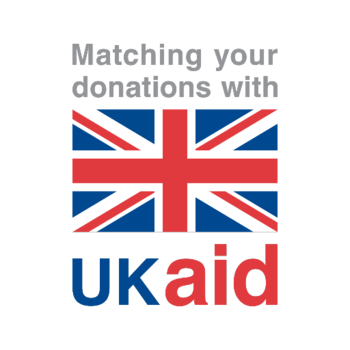Promoting gender-responsive, climate-resilient water, sanitation and hygiene (WASH) services and behaviours in the most climate-vulnerable, drought-prone communities in Berbere Woreda, Oromia, Ethiopia.
Where are we working?
With 134 of its 180 woredas (districts) prone to drought, Ethiopia's Oromia region is on the front-line of climate change. The Government of Ethiopia ranks Berbere as the woreda tenth most in need of climate-resilient WASH services, by criteria including poor WASH coverage, flood prevalence, proneness to drought and availability of groundwater-mapping resources.
In the areas of Berbere in which we are working, 82% of households rely on water from unprotected sources such as rivers and lakes for drinking, cooking, washing and producing food. The people living here experience the effects of climate change mainly through disruption of their access to WASH services.
What are we doing?
We are working with key local and national government ministries, the private sector and a range of civil society organisations (CSOs), including Ethiopian National Associations of Persons with Disabilities (FENAPD), to manage water demand and establish and embed a climate change adaptation plan to ensure water efficiency through watershed management, a climate-resilient water safety plan, and capacity development. The capacity development focuses on WASH governance, a rights-based approach and a community score card.
The project’s long-term goal – to increase access to climate-resilient and inclusive WASH services for people living in poverty and experiencing marginalisation – contributes to the Ethiopian Government’s ONE WASH National Programme (OWNP), Sustainable Development Goal (SDG) 6 on water and sanitation and SDG 13 on climate change.
Our priorities in Berbere are:
- Constructing multi-village and multi-purpose gravity-fed water supply schemes
- Building institutional efficiency and strengthening community ownership of services
- Focusing on inequalities by empowering women, girls and people with disabilities as agents of change to tackle the effects of climate variability
What have we achieved so far?
So far, we have:
- Completed six key studies and assessments to inform detailed planning, including a gender and social inclusion analysis, hygiene formative research assessment, and mapping and water security assessment
- Identified suitable water sources
- Begun construction on the main pipeline for a water supply system
- Begun the construction of WASH services in two schools and a healthcare centre
- Established partnerships with key government stakeholders
- Begun hygiene-related training with healthcare workers, including on menstrual hygiene management and rural sanitation, reaching 39 workers so far
- Begun hygiene promotion activities, so far reaching 2,136 people
- Supported the local government to establish a woreda-level watershed management plan and platform
- Worked alongside the government to re-energise the WASH steering committee and provided refresher training to woreda administration offices on creating water safety plans and identifying, prioritising and mitigating against existing risks to water supply
This project is part-funded by the UK Government.
Top image: Abiyot Asfaw, 38, health extension worker, giving a health and hygiene training session to women community members in Haro Nano kebele, Berbere District, Bale Zone, Oromia, Ethiopia. September 2022.






